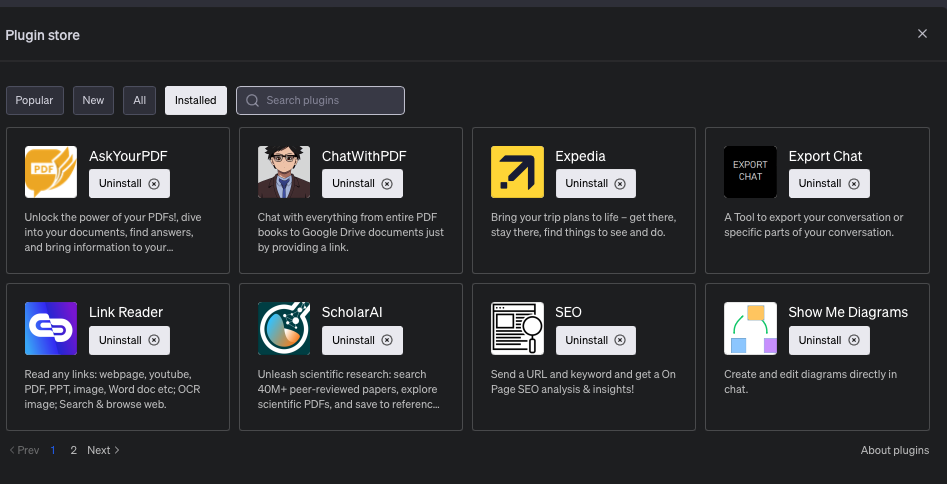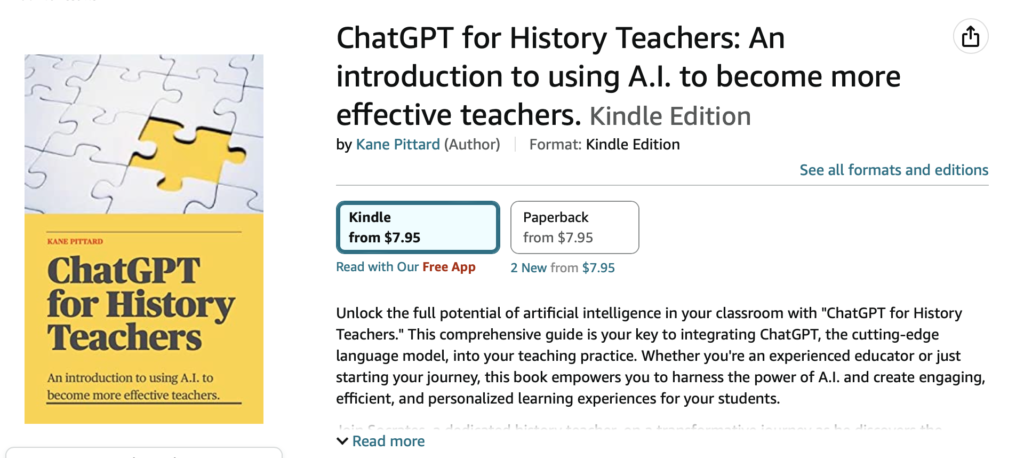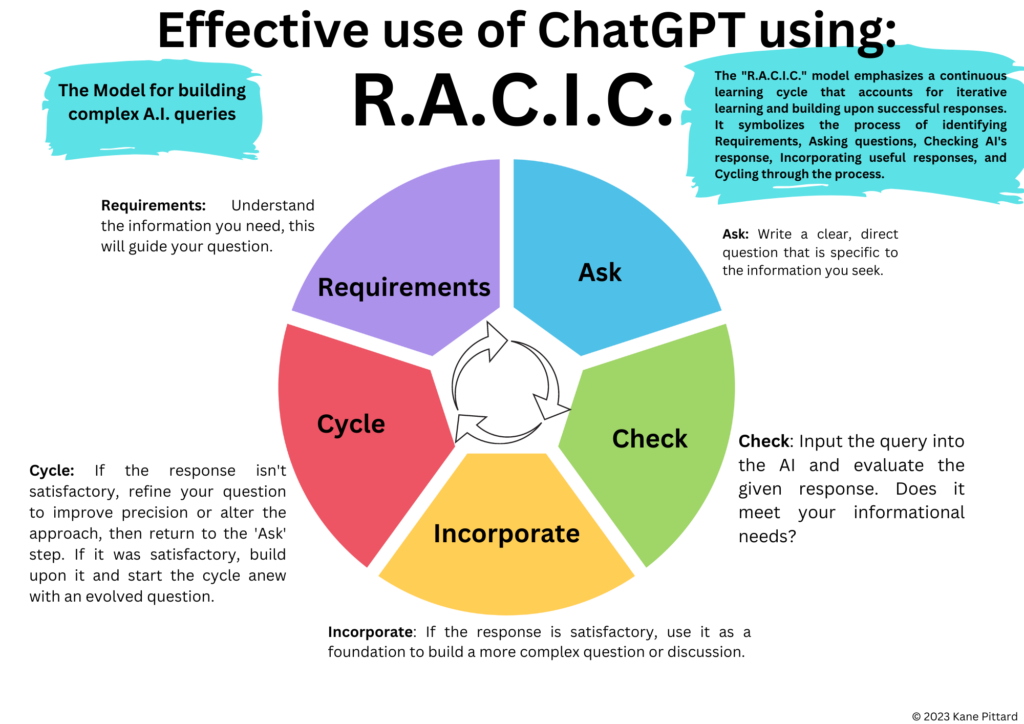
Though #ChatGPT and #AI is in the process of being banned by education departments for students across the world, what value can it provide teachers.
As technology continues to advance, it’s becoming easier for teachers to find resources and tools to help them create engaging and effective lessons for their students. One tool that has recently gained popularity is ChatGPT, a language model developed by OpenAI. In this blog post, we’ll explore how ChatGPT can be viewed as a virtual assistant for teachers and how it can be used to create and improve teaching resources for both humanities and computing subjects.

As a teacher, int he short time it has been released, I have personally experienced the benefits of incorporating ChatGPT into my daily teaching routine. Despite the concerns of some education departments about its use in the classroom, I believe that ChatGPT can be a powerful virtual assistant for teachers, making our lives easier and more efficient. Whether your learning area, ChatGPT can provide valuable assistance with research, writing, coding, technology integration, problem solving, resource generation and assessment preparation. Its ability to retrieve information, generate resources, and provide feedback has saved me time and effort in my preparation, allowing me to focus more on engaging my students and helping them succeed. I have found ChatGPT to be an invaluable tool in improving the quality of my teaching resources and making my work as a teacher more manageable.
Can it become our own free virtual assistant and make our lives simpler?
What is a virtual assistant:
A virtual assistant (VA) is an artificial intelligence-powered software or service designed to perform tasks and provide assistance to users. A VA can automate routine tasks, answer questions, and perform various other functions, depending on its programming and capabilities. ChatGPT can indeed be considered a digital virtual assistant. As a language model developed by OpenAI, it has been trained on a vast amount of text data, allowing it to respond to questions and perform tasks, much like a human virtual assistant. ChatGPT can answer questions, provide information, generate text, and more, making it a versatile tool that can be used in a variety of contexts.
For Humanities:
- Research Assistance: ChatGPT can quickly provide teachers with information about various topics, such as historical events, literary figures, and cultural traditions. This can help save teachers time and energy as they plan their lessons, allowing them to focus on creating engaging activities for their students.
- Writing Assistance: ChatGPT can also assist teachers with writing assignments and assessments for their students. It can provide suggestions for writing prompts, help teachers brainstorm ideas, and even suggest ways to improve grammar and sentence structure.
For Computing:
- Coding Assistance: ChatGPT can help teachers create and improve coding exercises and projects for their students. It can provide explanations of programming concepts, suggest code snippets, and help teachers troubleshoot coding errors.
- Technology Integration: ChatGPT can also assist teachers with incorporating technology into their lessons. For example, it can provide recommendations for educational software and apps that can help students learn programming and other computer science concepts.
For Mathematics:
- Problem Solving Assistance: ChatGPT can help math teachers solve mathematical problems, by providing step-by-step solutions, explaining mathematical concepts, and offering alternative methods to solve problems.
For Science Mathematics:
- Research Assistance: ChatGPT can provide science teachers with up-to-date information on various scientific topics, such as the latest research findings and advancements in their field of study.
- Experiment Planning: ChatGPT can assist science teachers with planning and designing experiments. It can provide recommendations on the best materials and equipment to use, offer suggestions for modifications to existing experiments, and help troubleshoot any issues that may arise.
For English Mathematics:
- Writing Assistance: ChatGPT can assist English teachers in editing and proofreading students’ writing assignments. It can provide feedback on grammar, vocabulary, and writing style, and suggest improvements to make the writing more effective.
For Sports:
- Sports Information: ChatGPT can provide sport teachers with up-to-date information on various sports topics, such as rules, techniques, and the latest news and developments.
For all learning areas:
- Resource Generation: ChatGPT can generate resources for science teachers, such as worksheets, quizzes, and interactive activities. This can save teachers time and effort that would otherwise be spent creating such resources.
- Exam Preparation: ChatGPT can provide teachers with exam preparation resources, such as past papers, mock exams, and practice problems. It can also provide feedback on exams and offer suggestions for improvement.
- Lesson Planning: ChatGPT can assist teachers in planning their lessons by providing recommendations on the best teaching strategies, activities, and resources to use.
As a teacher, I have found that ChatGPT has been an invaluable tool in helping me make my teaching resources faster and of better quality. With its ability to quickly generate resources such as worksheets, quizzes, and interactive activities, I have been able to save a significant amount of time that would otherwise be spent creating these resources from scratch. Its ability to quickly retrieve information on various topics has also saved me time in my preparation, as I no longer need to search for information manually. Furthermore, ChatGPT has been a valuable resource for generating unbiased question from the curriculum points. (Of coarse reviewed based upon my experience).
In conclusion, ChatGPT has the potential to be a valuable resource for teachers, allowing them to create and improve teaching resources for both humanities and computing subjects. By providing quick access to information, writing assistance, and technology integration, ChatGPT can help teachers save time and energy, freeing up more time for them to focus on engaging their students and helping them succeed.
What can it do for you?



